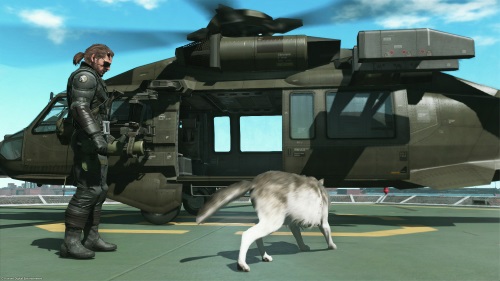Games of 2015
This is my 3rd (and final) look back on media I enjoyed this year, after music and books. There are probably games released in 2015 that you liked that I didn’t include in my list. Here’s the reason:
1. The game is Undertale – I haven’t played it yet.
2. The game is not Undertale – I played it and it was terrible. Or I didn’t know it existed. Or I’m waiting for it to go on sale. Or you just made the name of a game up to test my hipster cred and now you look mighty foolish, don’t you?
Last year there were 7 games that I liked best. Coincidentally, there are 7 this year too. Or maybe it’s not a coincidence and this is some Book of Revelations thing. At least we’ve got a rapture to look forward to.
7. Broken Age
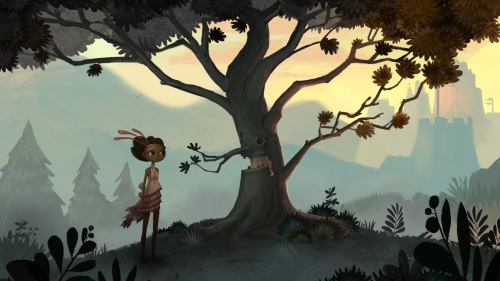
Broken Age is the game that made Kickstarter for video games a thing. Sure, small projects had used the service before, but with this game Tim Schafer made it possible for more ambitious projects from established developers to crowd-fund their games. Thankfully the game wasn’t just influential on the business side; it’s a good game too. Pitched as an old-school puzzle/adventure game of the kind that Schafer broke into the industry making, Broken Age tried, mostly successfully, to carry the banner for a genre that has largely vanished from major game studios.
The game wound up being split in two, and it’s unfortunate that each half has different strengths that the other would have benefitted from. The first act sets up an emotionally-engaging story about two teenagers trying to assert their own identities among families who try to control them. It didn’t have very interesting puzzles, though. The second act has much better puzzles, but largely abandons the personal stories of the first act in favour of some weird thing about aliens. Still, it’s a game I enjoyed almost all the way through, and the art is absolutely gorgeous. My screen-shot doesn’t do it justice, you really need to see it in motion, in full-screen, in high resolution.
The production of the game was captured in a documentary series, which is fantastic, and is available entirely free on Youtube (it was originally released to Kickstarter backers in pieces over the course of development).
6. Cities: Skylines

Probably the best Sim City game ever made, even though it’s not Sim City. Do you like building things? Cities, in particular? Do you like laying out roads and designing districts and increasing a region’s literacy level and decreasing its unemployment? To some people that probably sounds really boring! But if you are interested in those kinds of things, you’d have a blast playing Cities: Skylines.
5. Fallout 4

It might be surprising that Fallout 4 is this far down my list, since I suspect it will be many peoples’ favourite game of the year. I have sort of mixed feelings about it. It’s often a very good game. It looks fantastic; Bethesda have really upped their presentation game. I really liked the scavenging stuff, which gave a gameplay-related reason to search through the game’s many spaces. I love exploring spaces in games, and anything Bethesda makes is great for that.
And yet, it’s hard to ignore the game’s significant flaws. The biggest problem is that it’s not really a role playing game at all any more. It’s basically an open-world action game with experience points. There’s not really much room to develop an individual character, either from a gameplay or narrative standpoint. You’re always going to wind up playing as someone who solves every problem by shooting things in the face. And I thought the world-building was far less interesting than in Fallout 3 or Skyrim. The Commonwealth feels like a bunch of unrelated places that just happen to be close by.
I enjoyed Fallout 4 quite a bit for the first 2/3 of my time with it, but the longer I stayed with it, the hollower the experience started to feel, and the ending (I sided with The Institute) was lazy, kind of boring, and didn’t really resolve anything (except that there were a lot more dead people).
4. Rocket League
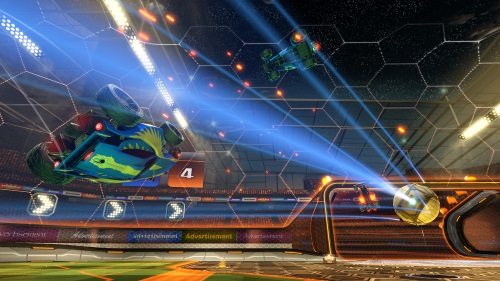
Rocket League is soccer/hockey with race cars. That sounds dumb, and for a while I ignored this game because it just didn’t sound very interesting. But I kept hearing how great it is, so eventually I caved and bought it. And boy, were people right – it’s an incredibly fun game. It’s hard to describe exactly what’s so fun about it, though the physics, a weird mix of floaty and precise, are surely a part of it. There’s no randomness in the game (as far as I know), so it’s easy to see yourself improving as you figure out how the physics work. The short game lengths (just 5 minutes) mean it doesn’t feel like a slog if you’re losing because another game is just around the corner. It also lends itself well to teamwork between strangers because it doesn’t require much coordination and it’s simple enough that it’s easy to see where you’re needed. I rarely play online multiplayer with strangers, but with Rocket League it was easy and fun to do.
3. Massive Chalice
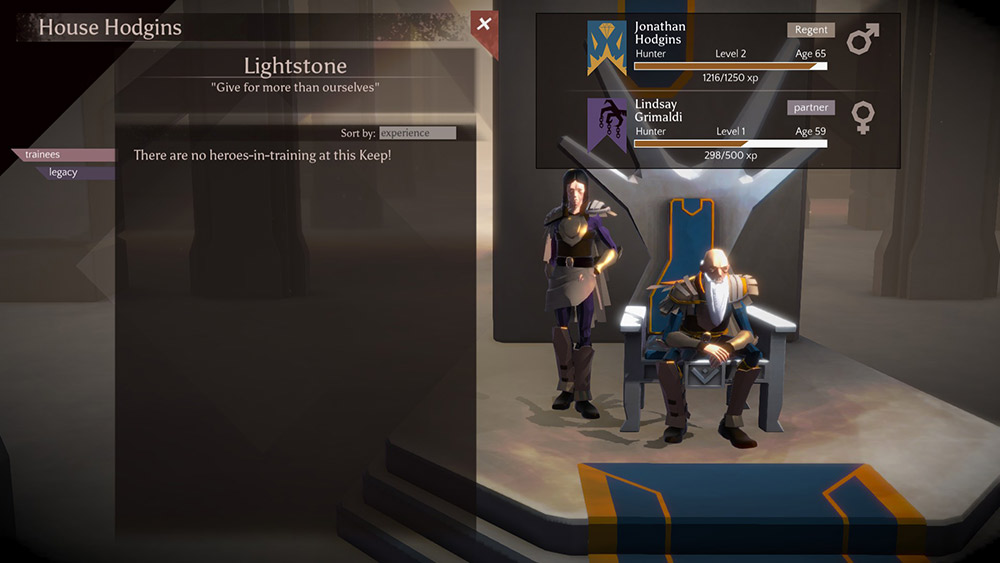
It might be surprising that I’ve got Massive Chalice ahead of games like Fallout 4 because it wasn’t a game that many people talked about this year, but I had a blast with it. Think of it as a XCom with a sense of humour in terms of how it plays for the battles, and mix that with a bit of Crusader Kings with a sense of humour for the overworld section. I’m a big fan of games with tactical RPG-ish combat, and the battles are fun in this. The part that really makes it shine, though, is the overworld, where you have to manage the training and succession of several royal families over 300 years. Trying to manage your bloodlines to ensure that you have better troops, teachers, etc. in the future, while potentially risking the lives of your best soldiers to win fights in the present is a great challenge. This is probably the first game I’ve played with permadeath for characters where it felt like a natural part of the game. Everyone dies eventually anyway (life expectancy is about 50-60 outside of combat), so if you lose someone in combat a few years ahead of that, it feels like part of the story you’re building rather than a major setback.
Anyway, if “XCom, but funny” doesn’t sell you on this game, I don’t know what would.
2. Shadowrun: Hong Kong
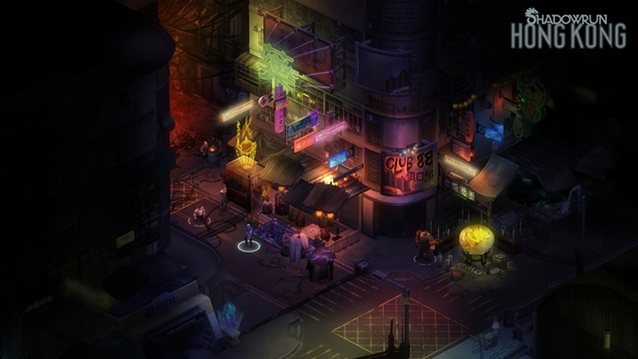
This is the third straight year I’ve had a Shadowrun RPG at #2 on my best-of-the-year list. I think this one might be my favourite of the three, all of which were funded by Kickstarters and made by a team lead by the man who created Shadowrun (he also created BattleTech and HeroClix, which is a pretty impressive run). Like the other recent Shadowrun games, Hong Kong is set in a cyberpunk future Earth where some humans have had a magical awakening. It has turn-based tactical combat in the vein of XCom, and you build a team of ‘runners to tackle the dirty work of various corporations in an effort to gain the information that you need to track down your missing father.
While Shadowrun: Hong Kong is built in the same engine as the others, there are a few reasons I like it best of the bunch. For one, it has the most interesting story. It’s also much better paced, both from a story and gameplay standpoint. They’ve also made some key fixes to the combat, like simplifying armor and cover, that make it more fun to play. I definitely recommend picking this up if you’re into RPGs. It is a stand-alone game that requires no knowledge of the previous two, but those are worth playing too.
1. Metal Gear Solid 5
Metal Gear Solid 5 is a game where you can have a helicopter ride into the middle of a battlefield and rain down hellfire on your enemies while it blasts The Cure’s “Friday I’m In Love” from a P.A. system, and then whisks you and your dog away while the chorus hits. I guess it’s a game where lots of other stuff happens, too.
I’m a huge fan of the Metal Gear Solid series. They’re hugely inventive and they have some of the most interesting stories in gaming. Well, all of them except MGS5, which has a story that’s pretty obviously unfinished. And what’s there of the story feels pretty hacked together. It’s clear that virtually the entire second half of the game was cut, but even the first half ends abruptly. From a story-telling standpoint, this is easily the worst Metal Gear Solid.
From a gameplay standpoint, though, it’s great. It’s called “open-world”, but I think of it more like “open mission”. There’s no real “world” in the broader sense of the term, but there is a large, relatively open space within which you get a lot of options for how to tackle your objectives. It’s like last year’s great Shadow of Mordor in that regard. The main story missions are just so intricately and carefully constructed, at least in the 1st act where the content seems to be finished. You get a huge variety of tools and tactics at your disposal, and it’s fun to mix and match on different missions, trying out different techniques and approaches.
One thing that I really like about this game is how smart it is about scaling. This is a topic I intend to write a full blog post about in the future, but I’ll explain it in short. In a lot of games, you’re told you’re a big hero with an army at his/her disposal, but you end up doing all the grunt work yourself while your soldiers just stand around. Dragon Age: Inquisition was particularly bad about this. But in MGS5, the larger your private military corporation gets, the more of the work that you did early on in the game can be passed on to your underlings. It’s a really smart design that lets the game throw a lot at you without requiring you to micromanage constantly. Other games (especially RPGs) should learn from this.

